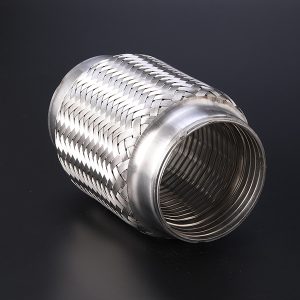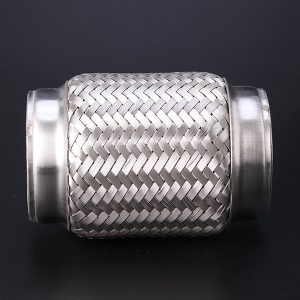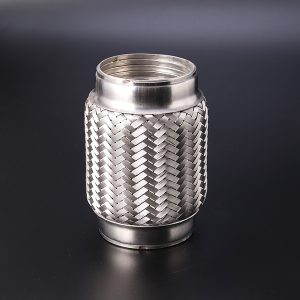


Regarding the 3.5-inch exhaust pipe, its size makes it suitable for large engines. These large engines require enhanced exhaust flow, including trucks, high-performance vehicles, and some diesel engines. It is the most commonly used part in the exhaust system of vehicles, especially in custom applications or for automotive performance.
Applications:
Custom: Popular in custom exhausts for its aesthetic and practical features.
High-Performance Vehicles: The larger the diameter, the lower the back pressure, and the better the engine performance, especially at higher rpm.
The materials are usually stainless steel, aluminized steel and titanium.
Regarding stainless steel, it is corrosion-resistant and durable.However, aluminium steel is cheaper than stainless steel, but its corrosion resistance is relatively poor.Titanium is lightweight and very durable, but it is more expensive.
There are many advantages.
Better sound deadening, allowing for a deeper, more powerful exhaust note.
For larger displacement models or engines with turbochargers.
Can improve exhaust flow efficiency, thereby increasing horsepower and torque.
Regarding the price of a 3.5-inch exhaust pipe, it depends on its length, material, and difficulty of design.
A 5-foot-long, 3.5-inch diameter stainless steel exhaust pipe costs about $65.
A shorter, 20-inch stainless steel pipe starts at about $52.
Custom application options with universal fittings are available in a variety of lengths and materials.
Here's what you need to look for when buying an exhaust hose: Make sure the 3.5" diameter will fit the rest of the exhaust system, including the catalytic converter, headers, and muffler. Larger exhaust pipes are noisier. Check to make sure you meet noise laws. Larger exhaust pipes require more space under the car, which may cause fitting issues.
When it comes to choosing a 3.5-inch exhaust pipe, there are a few things to consider to ensure that the exhaust hose meets your vehicle requirements and provides the performance you need.
The material affects the weight, cost, and durability of the exhaust pipe.
The first choice is stainless steel, which is suitable for all climates, especially in harsh winter environments and roads with road salt. It is particularly corrosion-resistant and can meet long service life.
Aluminized steel is suitable for mild climates or short-term use. It is more affordable, but has poor corrosion resistance.
Titanium is expensive, but it is lightweight and durable. It is suitable for high-performance applications.
Mild steel is usually used for short-term or budget construction. It is prone to rust but is economical.
If you need high-quality stainless steel pipes, they may cost more, but they will perform better and last longer.You can compare prices at auto parts stores or custom shops to choose the best one for your desired vehicle.

